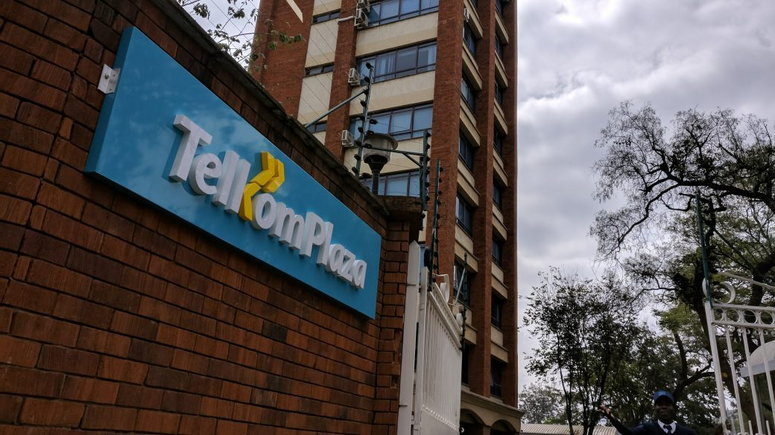
MOBILE MONEY INTEROPERABILITY
Telkom Kenya launched Mobile Money Interoperability to neutralize the large MPESA customer base that Safaricom enjoys. Mobile Money Interoperability is the ability to send/receive money to/from customers who are on a different mobile money network. The money sent from a different network is added directly to the customer’s account balance in the same way it would reflect had it been sent by a customer on the same network. Before interoperability the receiver of money would get a voucher code and go to the sender’s network to withdraw the money.
Data Prices
Last year, Safaricom chopped its data prices by 42 percent in response to increased competition in the telecommunications industry, as South Africa-based shareholder Vodacom revealed in recent filings that the Kenyan unit made the largest cuts.
“In the context of our commitment to drive digital inclusion, and given the tough consumer environment, we recognize the imperative to further lower data prices in some of our markets, while ensuring that this does not compromise our ability to make the investments in network and IT infrastructure needed to broaden service delivery and maintain high quality offerings,” Vodacom says in the report.
Vodacom’s operations in DR Congo lowered data charges by 29.2 percent, followed by Lesotho (28.9 percent), South Africa (23.3 percent) and Tanzania (13.8 percent) in the review.
Safaricom were also forced to introduce data expiry rull up after Former Kiambu governor William Kabogo sued telcos over expiry date for data bundles.
He said that he had contracted lawyers to draft a plan on the intended litigation with a view of freeing consumers from what he views as economic servitude.
“You cannot sell me sugar and then attach a condition that if I will not have consumed it within a specified time frame then you will come to repossess i…What you buy must belong to you,” he said.
He added that mobile data providers “are treating their data bundles like a pregnancy that once you carry it to term, you got no choice but give birth …” The politician said he believes that data bundles should not have an expiry date and if they must have, then they should be renewable.
Telkom Kenya’s Move
Data consumers in East Africa could see a significant reduction in their bills with the landing of East Africa’s largest submarine cable DARE 1.
DARE 1, finally arrived in Mombasa on Monday. The subsea cable, a joint project involving the government of Kenya through Telkom Kenya, Djibouti Telcom and Somtel, the leading telecommunication company in the Horn of Africa is expected to deliver a capacity of up to 36 terabits per second.
Dare 1 becomes the fifth undersea cable broadband infrastructure to link Kenya with the rest of the world after landing of SEACOM, Easts African Marine Cable System, Eastern African Submarine Cable System (EASsy) and Madagascar linked, Lion2.
DARE 1 links Djibouti, Berbera, Mogadishu, Mombasa, and Bosaso, and is projected to give a robust alternative for routing internet traffic, in addition, to reliably manage the capacity of traffic in the region.
This means that accessing internet services will be consistent as the capacity to handle traffic will be larger. Customers will also be likely pay less for their internet services.
DARE 1 ’s partners already have put plans in place to have the cable linked to Somaliland port city of Berbera and the region after the country’s government amended its laws to open up the fibre optic market to all competitors.
“This investment will increase interconnection data and voice which will benefit not just the private sector but also prove to be an asset for the young people of the larger Eastern Africa region” Abdirashid Duale the CEO of Dahabshiil group, the parent company of Somtel said.
According to the World Bank, for every 10% of the population that is connected to the broadband, there is a 1.38% impact to GDP in developing nations.
Telkom Kenya Managing Director Kebaso Mokogi said DARE1 will ‘not only bring a unique investment opportunity to the country and the region but the unrivaled redundant international connection on newer technology.’
“We believe that this investment will catalyze the advent of many more cables, especially to businesses looking to commoditize data in Kenya. As technology gets more sophisticated, we are constantly looking at less costly and more efficient alternatives and this is a good example of what cooperation can do,” the Director of International Business at Djibouti Telecom, Mr Mohamed Ahmed said.
The cable, which covers a total distance of 5400 kilometers, uses a 3-fibre pair with a capacity of 36TB each.
Telkom Airtel Merger.
Telkom Kenya and Airtel, on February 8, 2019, signed a commercial agreement to merge their operations. The scope of the deal will only involve mobile as well as enterprise and carrier services. This means Telkom’s real estate portfolio will not form part of the deal.
The merger is alleged to be a major scam either in the kitchen or already rolled out and served to bluff the public. According to a 2015 valuation, Telkom’s real estate was approximately Sh13 billion, comprising mainly land, buildings, sports clubs, undersea fibre optic cable and frequency spectrum. More troubling is the fact that the shareholding of the new firm, Airtel-Telkom, will be determined at the close of the transaction.
Legally, the two entities will have ceased to exist and their operations and share stocks surrendered to the new outfit, Airtel-Telkom. Yet, the shareholding and share value will remain unknown until the end of the transaction.This may be a pointer to a mega economic fraud against the taxpayer. Currently, 60 per cent of Telkom is owned by British private equity firm Helios Investments, who bought out France Telecom, while 40 per cent is owned by the Government of Kenya.

Below are Telkom Kenya data bundle rates and validity Showing 1 to 7 of 7 entries.
In 2018, Telkom Kenya expanded their reach of its 4G-network to Nairobi’s outskirts. The Telkom 4G broadband Internet is now available in Athi River, Syokimau, Kitengela, Thika, Kiambu Town, Kikuyu Town, Kiserian and Ngong.
“We remain committed to consistently refining and progressively expanding our network across the country, thereby assuring availability and the delivery of high quality service to our customers,” said Telkom CEO Aldo Mareuse in a 2018 statement.
The expanded 4G network coverage is the product of a Sh5bn investment Helios made when it bought into the company two years ago. Reports in January this year showed the company’s newest customers spent more on data than phone calls.
Telkom said it was also reviewing its network architecture, a process that involves developing alternative fibre routes to provide back up during down time and the expansion of pipes to make sure the bandwidth is improving. The company’s upgrade to its IP platform has also improved its Internet coverage.



















